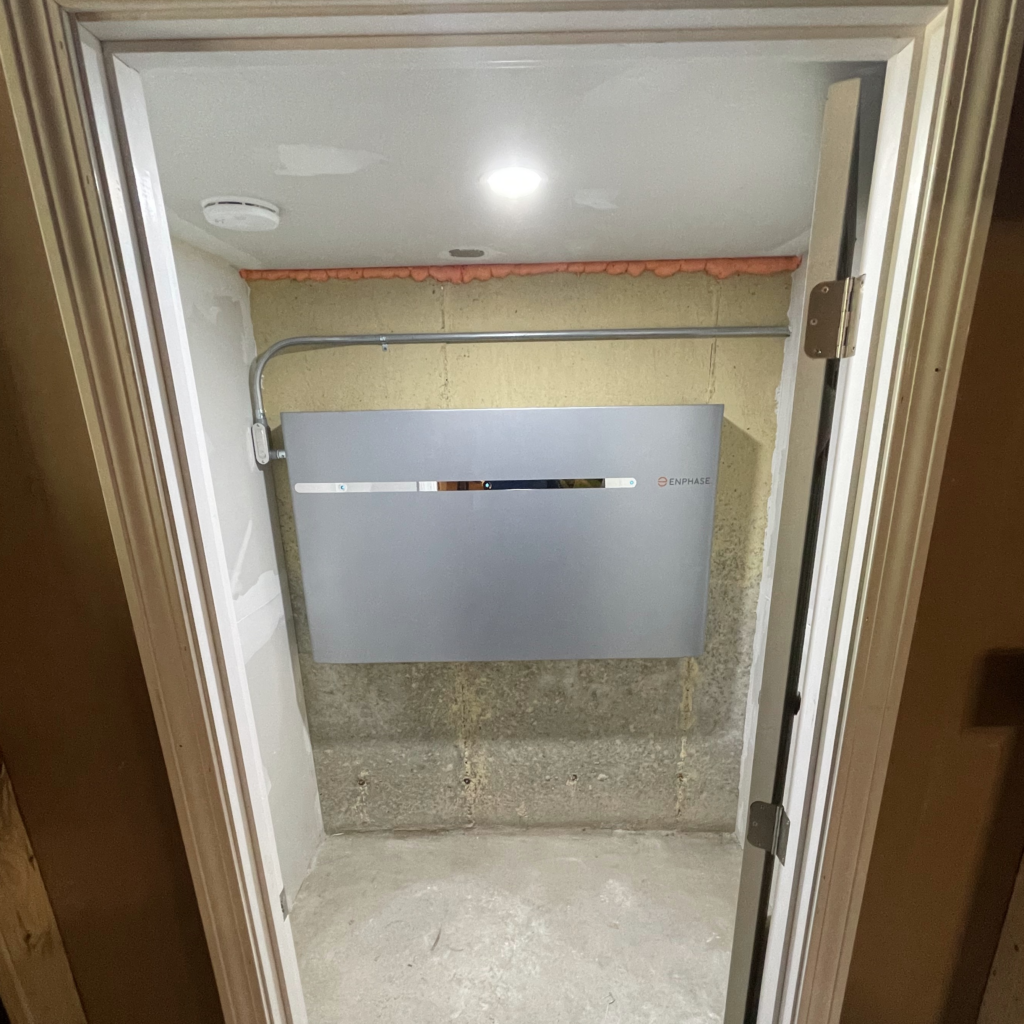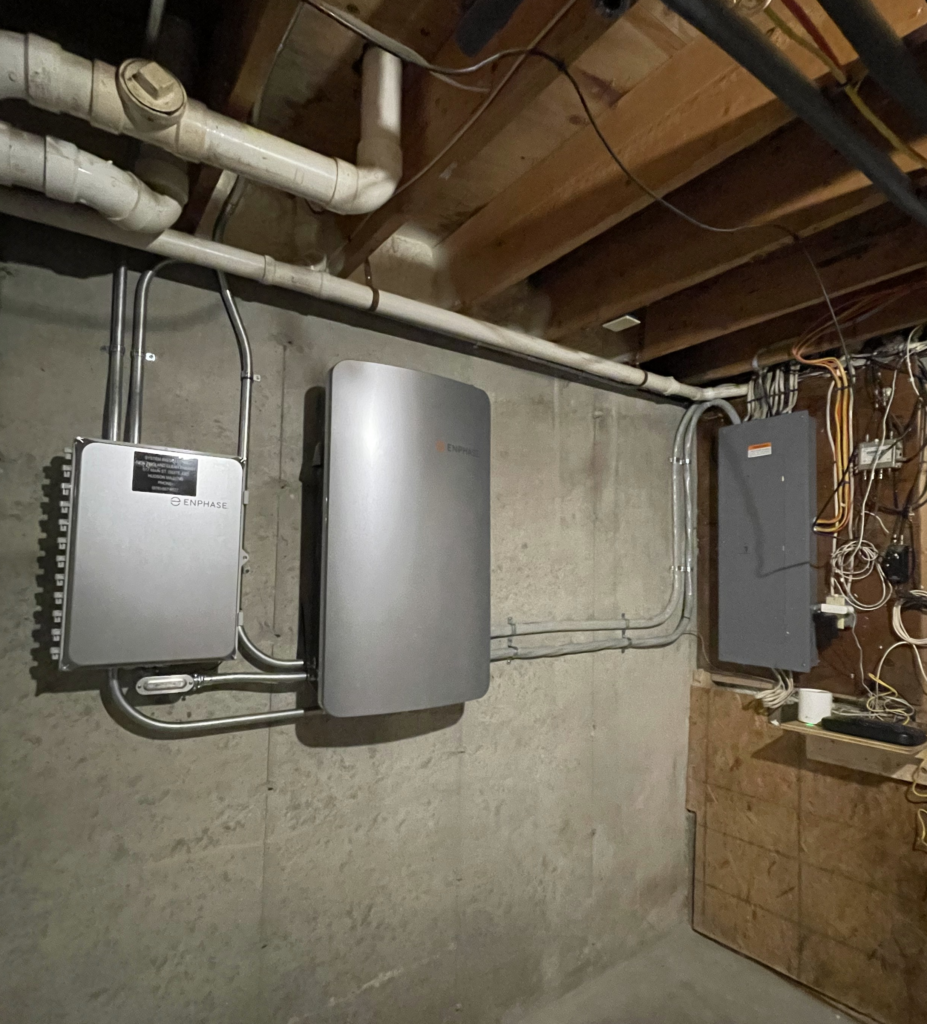Solar power technology is gaining momentum worldwide, with both homeowners and businesses seeking ways to reduce their dependence on conventional energy sources and minimize their carbon footprint. One way to make this possible is by installing solar panels. However, adding solar batteries with a new system or even to an existing system is becoming increasingly popular.
 Solar batteries can do many things. In particular, they can store excess solar energy for later use, a process we often call “sun-shifting.” So instead of calling on the grid for power once the sun goes down you can make use of the green energy your solar panels created earlier in the day. That could be useful if your utility doesn’t offer net metering (or full net metering) or has “time of use rates” that often make power consumed in the early evening more expensive than at other times of day.
Solar batteries can do many things. In particular, they can store excess solar energy for later use, a process we often call “sun-shifting.” So instead of calling on the grid for power once the sun goes down you can make use of the green energy your solar panels created earlier in the day. That could be useful if your utility doesn’t offer net metering (or full net metering) or has “time of use rates” that often make power consumed in the early evening more expensive than at other times of day.
But solar batteries can also play the role of a power generator, meaning they can provide power when the grid goes down. If your grid fails solar panels alone will not provide your home power, but if you have a battery, the panels and battery working together can play the role of a backup generator.
However, many people rightly believe that solar batteries can be expensive, so many people wonder if they qualify for a type of solar battery tax credit or other incentives.
The good news is that solar batteries do in fact qualify for the solar Investment Tax Credit (ITC). The ITC is a federal incentive designed to encourage the adoption of solar energy by providing tax credits to offset upfront installation costs. The ITC offers a 30% credit of total project costs for solar panels or batteries. Furthermore, many utilities are now offering battery incentives that will pay you to use your battery to augment the grid at peak times (such as during summertime heat waves). When combined with the ITC your investment in solar batteries can start to look not just comparable in cost to a fossil fuel generator, but perhaps even cheaper once you factor in the cost of fuel and regular maintenance.
The demand for solar batteries has also made it simpler than ever to integrate battery storage into your home’s solar panel system. There are fully integrated systems that can ensure that the battery and solar work together, as well as batteries that are designed to work with older existing solar systems in a straightforward and simple manner. And as noted, thanks to the recent changes in the Inflation Reduction Act (IRA) enacted in 2022, the 30% ITC applies whether your battery systems are connected to solar panels or is a standalone system battery as well. 
Being eligible for the federal tax credit for solar batteries is simple. First, your battery system needs to have a capacity rating of at least 3 kilowatt-hours (kWh), a requirement met by most residential solar batteries (most people install 5 to 10 kWh systems). And second, the tax credit can only apply to the costs of a new battery and its installation. Maintenance or repair costs, which are normally rare, do not apply.
In conclusion, solar batteries are a valuable additional investment for your solar panel system. Installing a battery along with a solar panel system can ensure that you have a reliable, quiet, and continuous energy supply, even during outages. And with the solar tax credit, you can save money.
It is essential to work with a professional and experienced solar installer to ensure your solar panel and battery systems meet all the required criteria for the ITC. Contact us at 877-886-8867 to learn more about our solar panel and battery installations services, and how we can help you access the available incentives and benefits.
If you liked this article, you may also like:
Battery Fires: An Important Note on Home Battery Safety
Do Solar Panels Work in the Winter?
Another Year Under the Sun: Our 2023 in Review





No comments yet. You should be kind and add one!
By submitting a comment you grant The Energy Miser a perpetual license to reproduce your words and name/web site in attribution. Inappropriate and irrelevant comments will be removed at an admin’s discretion. Your email is used for verification purposes only, it will never be shared.